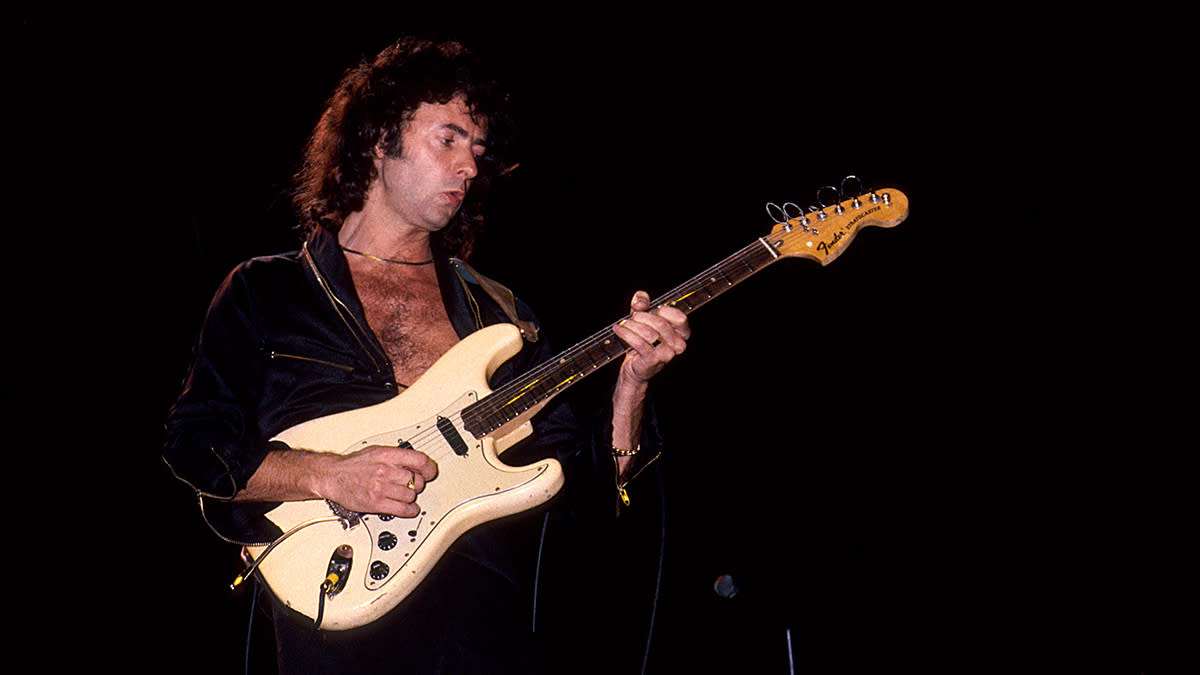Deep Purple almost lost the legendary Smoke on the Water riff because of armed police storming their studio

Whenever the conversation of the greatest guitar riffs of all time crops up, it isn’t long before the phrase Smoke on the Water is uttered. Such is the history of this Deep Purple classic, there’s no point wasting time mulling over just how iconic the humble four-note motif has become.
Despite its popularity, though, the world may have been without the hit riff had things panned out slightly differently when the English rock outfit were busy recording their sixth studio effort, Machine Head, back in the early ‘70s.
As the band recalled in the latest issue of Classic Rock – which gathered transcripts from various interviews surrounding the making of Machine Head – Smoke on the Water was almost lost due to one absurd reason: armed police attempting to gain entry into the studio.
The circumstances surrounding Machine Head and Smoke on the Water are well documented: though the band were set to record in Montreux Casino with the help of Rolling Stones’ mobile studio, they were forced to adopt a plan B when someone set the venue on fire with a flare gun during a Frank Zappa concert.
As a result, Deep Purple gathered in The Pavilion theater and ballroom to set about recording Machine Head. However, despite having a self-imposed 10pm noise curfew due to the proximity of the sound-carrying mountains, they didn’t finish until “four in the morning”.
Recalling the evening, drummer Ian Paice said, “The first track we laid down – and the last to be finished – was Smoke on the Water, before we knew what it was going to be called. There was no sound-proofing and we were recording at night. A hell of a racket!”
It turned out that racket – which had been “carrying across the mountain” – didn’t go down too well with the locals, or the police force, because it wasn’t long before the band received some unhappy visitors.
“We did Smoke on the Water there, and the riff I made up in the spur of the moment,” Richie Blackmore continued. “I just threw it together with Ian Paice. Roger Glover joined in. We went outside to the mobile unit and were listening back to one of the takes, and there was some hammering on the door.
“It was the local police, and they were trying to stop the whole thing because it was so loud,” he went on. “We knew that they were coming to close everything down. We said to Martin Birch, our engineer: ‘Let’s see if we have a take.’ So they were outside hammering and taking out their guns… It was getting pretty hostile.”
Picking up from that point, Birch then added, “It was about two in the morning, the neighbours were complaining. We locked all the doors. I mean, literally, it was ‘da-da-da! Bang, bang’, “polizei, polizei” “Piss off!” ‘Da-da-da’. So we had to get the track down before the police broke in and chucked us out.”
Fortunately, everything worked out in the end, and Smoke on the Water eventually made it onto the album, despite only being included as a “filler”.
“It wasn’t being considered as a track for the album,” Ian Gillan revealed. “It was a jam at the first sound-check. We didn’t work on the arrangement – it was a jam. Smoke on the Water only made it onto the album as a filler track because we were short of time.
“On vinyl, thirty-eight minutes – nineteen minutes per side – was the optimum time if you wanted good quality,” he explained, “and we were about seven minutes short with one day to go. So we dug out the jam and put vocals to it.”
Unsurprisingly, this nonchalance towards the track meant its eventual success took the whole band by surprise.
As bassist Roger Glover reflected, “With Machine Head none of us predicted [the success of] Smoke on the Water. That was the last thing on our minds that that would become an iconic song. You never can tell, it’s down to the people.”
Despite the riff's popularity, its origin is still something of an enigma. Back in 2007, Blackmore claimed he conceived the Smoke on the Water riff after listening to the ominous chimes of Beethoven's Fifth Symphony and attempting to reverse the classical track's hook.
However, Blackmore's tongue-in-cheek humor is well documented, meaning the riff may have just been a classic example of “talented guitarist plays guitar and stumbles on something that sounds good”. Judging by the comments used in the latest Classic Rock, though, this looks far more likely.
Head over to Magazines Direct to pick up the latest copy of Classic Rock, which contains the full deep-dive into the making of Machine Head.
